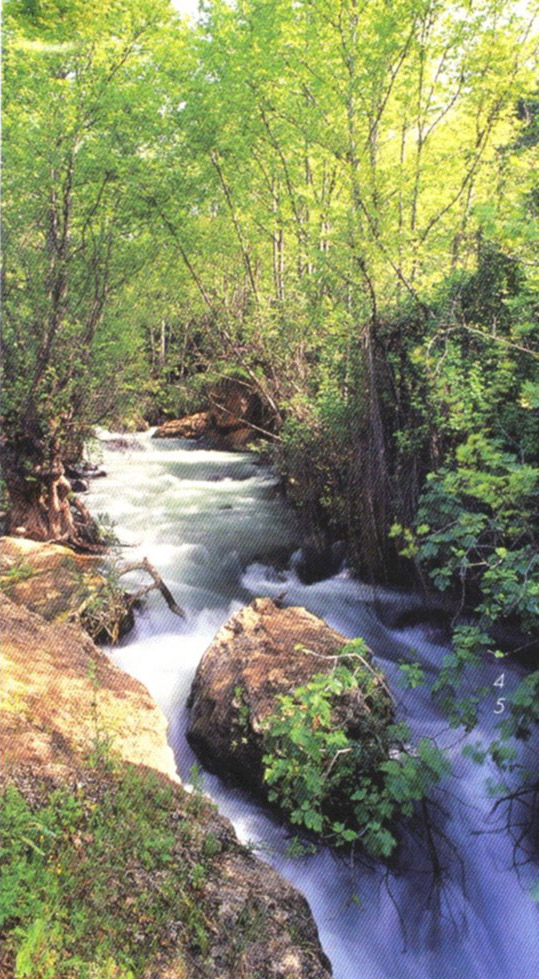|
|
|
|
- Hermon River
in Israel
|
 |
- The High
Calling Of God
|
|
|
|
Not as though I had
already attained, either were already perfect: but I follow after,
if that I may apprehend that for which also I am apprehended
of Christ Jesus. Brethren, I count not myself to have apprehended:
but this one thing I do, forgetting those things which are behind,
and reaching forth unto those things which are before, I press
toward the mark for the prize of the high calling of God in Christ
Jesus.
Let us therefore, as
many as be perfect, be thus minded: and if in any thing ye be
otherwise minded, God shall reveal even this unto you. Nevertheless,
whereto we have already attained, let us walk by the same rule,
let us mind the same thing. Brethren, be followers together of
me, and mark them which walk so as ye have us for an ensample.
(For many walk, of whom
I have told you often, and now tell you even weeping, that they
are the enemies of the cross of Christ: Whose end is destruction,
whose God is their belly, and whose glory is in their shame,
who mind earthly things.)
For our conversation
is in heaven; from whence also we look for the Saviour, the Lord
Jesus Christ: Who shall change our vile body, that it may be
fashioned like unto his glorious body, according to the working
whereby he is able even to subdue all things unto himself. (Philippians 3:12-21) |
|
|
|
|
-
- The Epistle
of Paul to the PHILIPPIANS
- 'l'he city of Philippi
was named for Philip of Macedon, the father of Alexander the
Great, who seized the city in 358 B.C. from the Thracians. Later,
Octavius (Augustus Caesar) made Philippi a Roman colony. It was
a principal city on the great Egnatia highway in Macedonia (this
highway extended from Rome to Byzantium), and traders from both
eastern and western countries stopped there often.
-
- This made it a strategic
place for the spreading of the gospel.
In the early portion of Paul's second missionary journey, the
Lord indicated that He wanted Paul to preach the gospel in Macedonia
(Acts 16:9, 10). Apparently there were no synagogues in the city
because on the Sabbath, Paul went out of the city and down to
the bank of the river where he found Lydia and a number of other
women who accepted what Paul had to say (Acts 16:13, 14).
-
- After Lydia and her
family had been baptized, she asked Paul and his companions to
stay at her house (Acts 16:15). Later, Paul and Silas were imprisoned
for casting the unclean spirit out of a slave-girl (Acts 16:16
-25). This led to the salvation of the jailer and his family
(Acts 16:26 -34). Paul may have visited them again when he journeyed
from Ephesus to Macedonia, because he spent the spring with them
(Acts 20:1, 6; 2 Cor, 2:12, 13). The church that Paul established
there was probably the first in all of Europe. The Apostle Paul
is thought to have written this letter to the Philippians during
his first Roman imprisonment (ca. A.D. 60 -62).
Paul, who was a tentmaker by trade (Acts 18:3), ordinarily
refused to receive any financial assistance from the churches
(2 Cor. 11:7 -9). However, he did accept gifts from the Philippian
brethren when he was in Thessalonica (Phil. 4:16, 18). Epaphroditus
brought another gift to Paul during his imprisonment in Rome
(Phil. 4:18). While Epaphroditus was there, he became severely
sick and nearly died. He did recover, however, and carried this
letter back to Philippi (Phil. 2:25 -30).
Although there is no development of one particular theme,
the concept of the all-sufficiency of Christ is found throughout
the book. Christ gives meaning to life and causes people to serve
Him even to their death (Phil. 1:20, 21). [Source for Introduction of chapter:
Hebrew Greek Key Study Bible KJV edited by Spiros Zodhiates,
Th.D. AMG Publishers, Chattanooga, TN 37422]
|
|
|
|
|
-
-
-
-
|